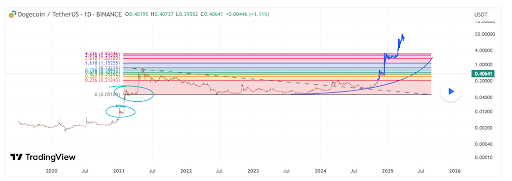Federal prosecutors have secured a guilty plea from the leader of a Miami-based digital currency scam syndicate specializing in an illegal refund scheme.
Esteban Cabrera Da Corte pleaded guilty on Wednesday to charges of wire fraud in connection to his role in defrauding U.S. banks and a digital currency exchange of $4 million. Court documents reveal that Cabrera and his associates earned a fortune using “false and stolen identities and then deceiving U.S. banks regarding those transactions.
The Department of Justice (DOJ) noted that Cabrera bought $4 million worth of digital assets in separate transactions using fake U.S. passports and driver’s licenses via multiple accounts. After purchase, the digital assets were transferred to other wallets in other exchanges still controlled by the syndicate.
“After the cryptocurrency was transferred, the defendants made telephone calls to the U.S. banks during which they falsely represented that the cryptocurrency purchases were unauthorized, leading the banks to reverse the transactions,” read the indictment documents.
U.S. Attorney Damian Willams called the guilty plea as a win for the DOJ in its quest to rid the industry of bad actors looking to prey on unsuspecting investors. Despite his plea, Cabrera faces up to 20 years in federal prison for wire fraud charges but could receive a reduced sentencing from the trial judge.
The DOJ’s statement disclosed that Cabrera agreed to forfeit $1.2 million and pay an additional $3.5 million for restitution. Court documents failed to disclose the identity of the digital currency exchange that bore the brunt of losses in Cabrera’s scheme.
“Our office will continue to work vigorously with our law enforcement partners to protect the integrity of U.S. banks and financial markets to the full extent of the law from those who seek to enrich themselves through fraud and deceit, including those who attempt to shroud themselves in the anonymity of digital transactions.
Just another day on the job for the DOJ
The latest guilty plea by the DOJ is one of several in the bag stemming from a flurry of enforcement actions against perceived bad actors. Early in the week, it charged five individuals for alleged price manipulation of digital assets using trading bots to mislead investors.
Titanium Blockchain CEO Michael Stollery received a four-year term in prison over a $21 million fraud scheme in 2017. The DOJ’s success at stifling the activities of digital currency bad actors is partly a result of increased cooperation with digital asset service providers in the United States.
Watch: BSV Provides Solutions for Cybersecurity & Fraud
New to Bitcoin? Check out CoinGeek’s Bitcoin for Beginners section, the ultimate resource guide to learn more about Bitcoin—as originally envisioned by Satoshi Nakamoto—and blockchain.
Credit: Source link









%20(1).png)





































